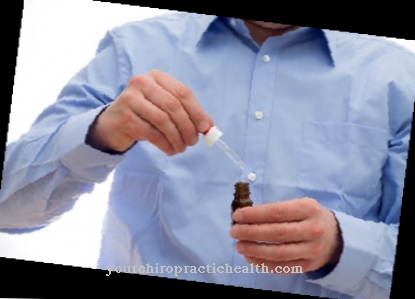Sometimes this can emerge after a tooth or gum infection Tooth granulomas at the tip of the root or in the area of the gingival pockets.
What are dental granulomas?

Tooth granulomas mostly caused by chronic irritation or inflammation of teeth or gums. Tooth granulomas are small nodules that can sometimes be felt in the jaw, especially around the gums. The area is sensitive to tenderness, and tooth granulomas in the gum area can also bleed. No matter where they are, tooth granulomas are most often associated with pain.
Tooth granuloma is a nodule-like tissue in the area of the teeth or gums. As you can see from the term dental granulomas, they are granulated structures made up of different cells, mostly lymphocytes, blood vessels and connective tissue cells.
Tooth granulomas can arise as a reaction to persistent inflammation, infection, or allergies. There are different types of dental granulomas. They can appear in the area of the gums or at the tip of the teeth.
causes
The different Tooth granulomas can have different causes:
There are mushroom-shaped tooth granulomas known as epulis. These tooth granulomas are mostly caused by inflammation to which the surrounding tissue of the tooth reacts. Such inflammation can form in a gum pocket and then expand. Epulis can also arise from prolonged irritation from filling margins, crowns or pressing prostheses. A special form of these tooth granulomas occurs during pregnancy (epulis gravidarum).
The root tip granuloma is mostly caused by progressive caries, which leads to inflammation inside the tooth and spreads to the area of the root and the jawbone. This inflammation forms tooth granulomas, which encapsulate on the tip of the tooth and form a focus there.
Foreign body granulomas can occur in the area of the teeth or in other parts of the body if a foreign body penetrates the tissue and causes persistent inflammation there, which is encapsulated there in a granuloma. The foreign objects can be metal particles, wood chips or thread.
Symptoms, ailments & signs
The typical symptoms of tooth granulomas include more or less severe pain. These are the same complaints that occur with all inflammations in the tooth area. Tooth granulomas can appear both hidden at the tooth root and visible as a protrusion of the gums (epulis). While the so-called apical granulomas (root tip granulomas) are mainly characterized by pain, an epulis can also bleed easily.
However, tooth granulomas can also remain painless for a long time. Therefore, invisible granulomas are sometimes discovered late. Apical granulomas usually cause discomfort when biting or when consuming cold or hot food. In these cases, severe toothache occurs even though the tooth in question has already died.
However, there is granulation tissue at the tooth root, which is inflamed and presses on the jawbone when subjected to mechanical stress. The epulis, in turn, is a mushroom-shaped or hemispherical structure that sits on the gumline. It is a pink protrusion of the gums.
Often the epulis occurs during pregnancy. But it can also arise due to constant stimuli from ill-fitting dentures, crowns or disturbing filling margins as well as insufficient oral hygiene. In rare cases, so-called internal tooth granulomas, which form as a result of chronic tooth nerve inflammation, are also observed. Since the tooth is only poorly supplied by the granulation tissue, tooth fractures often occur.
Diagnosis & course
Tooth granulomas usually manifest as persistent toothache that forces you to see a dentist. The dentist first has the patient's complaints describe - usually a throbbing toothache - and then examines the oral cavity more closely.
He can easily diagnose epulis because these tooth granulomas appear in the area of the gums, often bleed and are easily recognizable with the naked eye. The dentist will feel them and then decide how to treat the tooth granulomas. However, he cannot detect root tip granulomas and foreign body granulomas with the naked eye; an x-ray of the jaw must be made to diagnose these tooth granulomas.
If tooth granulomas are completely removed along with the infected tissue, the focus of inflammation can heal well. However, it is possible that tooth granulomas form again in the same place if the tissue of the tooth granulomas is not completely removed. If the inflammation persists, dental granulomas can form jaw cysts that can damage the jawbone.
Complications
If dental granulomas grow to displace adjacent tissue, serious complications can arise. At the same time, bulges and sometimes pain occur which, due to their chronic nature, represent a considerable psychological burden. The granuloma form epulis can cause small nodules on the gums, which lead to further pain and sometimes bleeding.
In addition, tooth granulomas can recur, i.e. they can recur after successful treatment. If the inflammation persists for a long time, cysts can form, which in turn can damage the jawbone. Jaw cysts can also cause infections and tissue damage. Pronounced growths occasionally cause sensory disorders and numbness in the affected area.
The therapeutic treatment of a tooth granuloma does not involve any major risks. However, side effects such as temporary confusion, memory problems and panic attacks can occur under local anesthesia. A surgical procedure occasionally results in wound healing disorders or the formation of scars.
Healing can be complicated due to the location of the tooth granulomas. Medicines prescribed at the same time also harbor risks and side effects, which can develop into serious complications in the case of previous illnesses or combination therapy with other medications.
When should you go to the doctor?
If the inflammation of the gums persists or is chronic, a doctor should be consulted. If there are problems with eating, toothache or swelling in the mouth, a check-up by a doctor is necessary. If you have an unusual taste in your mouth, irregularities when wearing braces or dentures, or if you have abnormal speech, a doctor is required.Discoloration of the gums or deformations in the area of the face are warning signals of the organism.
They must be examined by a doctor so that a diagnosis can be made. An irritation in the mouth area, a general malaise, loss of appetite or a refusal to eat are signs of a health impairment. A doctor is required so that measures can be taken to alleviate the symptoms. As pregnant women are at an increased risk of developing dental granulomas, special vigilance is necessary, especially for them.
Any changes should be discussed with a doctor immediately. If teeth fracture, medical care should be sought immediately. Before taking an analgesic medication, it is always advisable to consult a doctor or medical professional. There may be side effects that make the symptoms worse. If teeth loosen or dentures slip, a check-up visit to a doctor is also necessary.
Treatment & Therapy
Tooth granulomas If left untreated, cause pain over a long period in most cases. The tooth granulomas can be removed under local anesthesia.
In addition, the dentist must also treat the root and inflamed tissue that caused the tooth granulomas. If areas of the bone are affected, these must also be removed. If the tooth is severely carious, the dentist will decide to pull this tooth out because of the renewed risk of inflammation.
In the case of root apex granuloma, the dentist must remove part of the tooth root and the infected tissue around it by means of a root apex section.
In addition to surgical interventions, the tooth, root and jaw area are treated with medication to heal the inflammation.
You can find your medication here
➔ Toothache medicationprevention
A direct prevention against Tooth granulomas does not exist, but much can be done by practicing good oral hygiene by cleaning your teeth and interdental spaces regularly, which together prevent tooth decay and gingivitis. Because tooth granulomas usually occur on inflamed teeth, caries prophylaxis is also a prophylaxis against tooth granulomas.
Aftercare
Follow-up care for dental granulomas should go beyond the end of the healing phase, although the available measures are limited. The defect is treated openly using a tamponade and a dressing plate. The focus is on ongoing examinations and accompanying diagnostics so that deterioration or further complaints can be largely excluded.
It is therefore important to consult the doctor early on in the event of any change. If the attending physician can intervene, the course of the disease will be positively influenced. This is usually done through drug treatment using ointments and tablets. The course of therapy depends on whether the drug can already be discontinued.
In some cases, however, medical interventions in the patient's mouth are sometimes necessary. As part of the aftercare, the patient can do some things himself that have a positive effect on the course of the disease. The improvement of oral hygiene is fundamental. Regular oral care is essential to prevent new tooth granulomas from forming. This includes brushing your teeth and rinsing with an antibacterial mouthwash. When taking medication and applying ointments, it is essential to pay attention to the prescribed regularity.
You can do that yourself
Irritation of the teeth or gums should be avoided so that an increase in health problems is reduced to a minimum. For this purpose, the intake of the food must be checked and, if possible, optimized. The intake of acidic foods, alcohol or nicotine should be avoided.
Worn or inserted braces and existing dentures must be checked for pressure in the mouth area. Pressure sores can intensify existing complaints or disrupt the healing process. As soon as they occur, a doctor should be consulted so that they can be checked. Independent actions are not advisable in these cases.
Tooth granulomas are usually associated with the occurrence of pain. Nevertheless, the consumption of painkillers is by no means recommended without a doctor's consultation. Complications and side effects can occur, which can lead to serious disorders. In everyday life, the existing physical and mental stressors must be reduced to a minimum. Persistent mental overloads have a negative impact on the course of recovery and must therefore be reduced as quickly as possible and permanently.
To ensure that existing health irregularities do not spread, daily teeth and mouth cleaning is necessary despite the symptoms. The cleaning processes in the mouth and throat must be adapted to the health options, but should by no means be completely stopped. In addition, the jaw should not be excessively stressed.

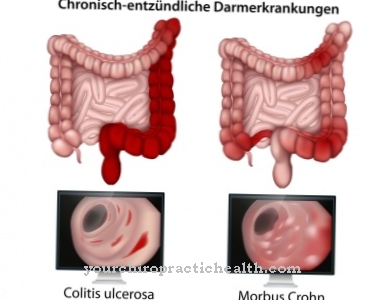
.jpg)

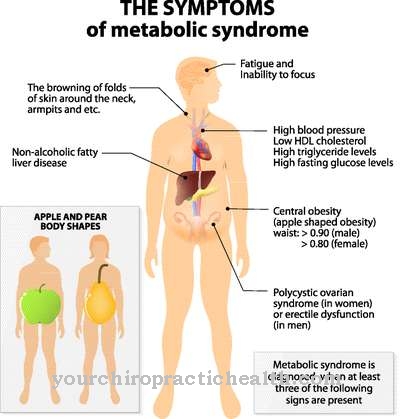
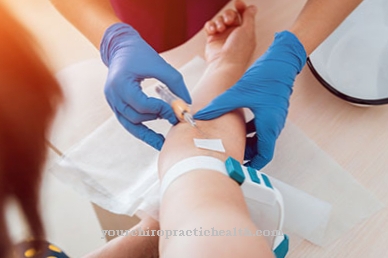




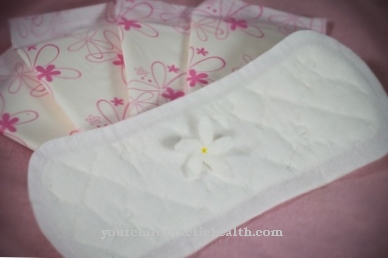
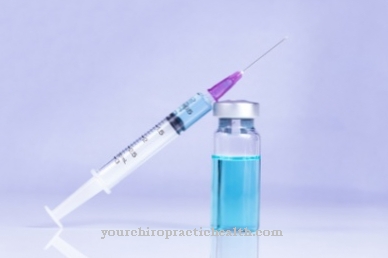
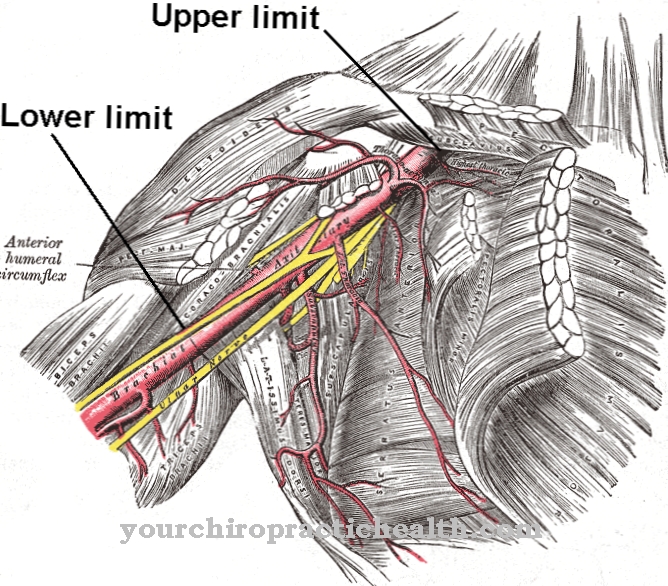




.jpg)


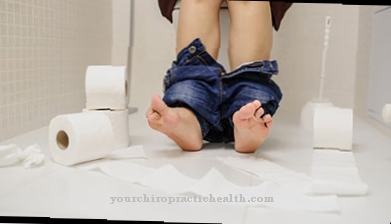

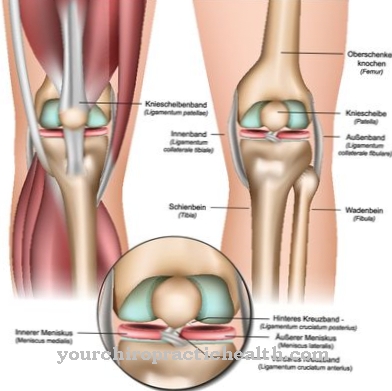
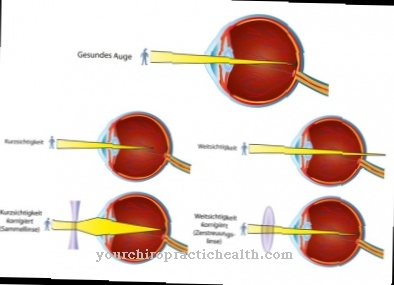
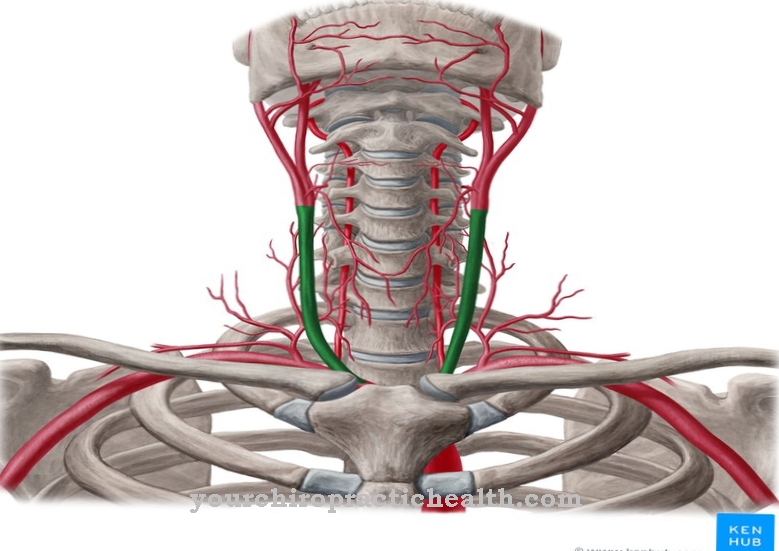
.jpg)
